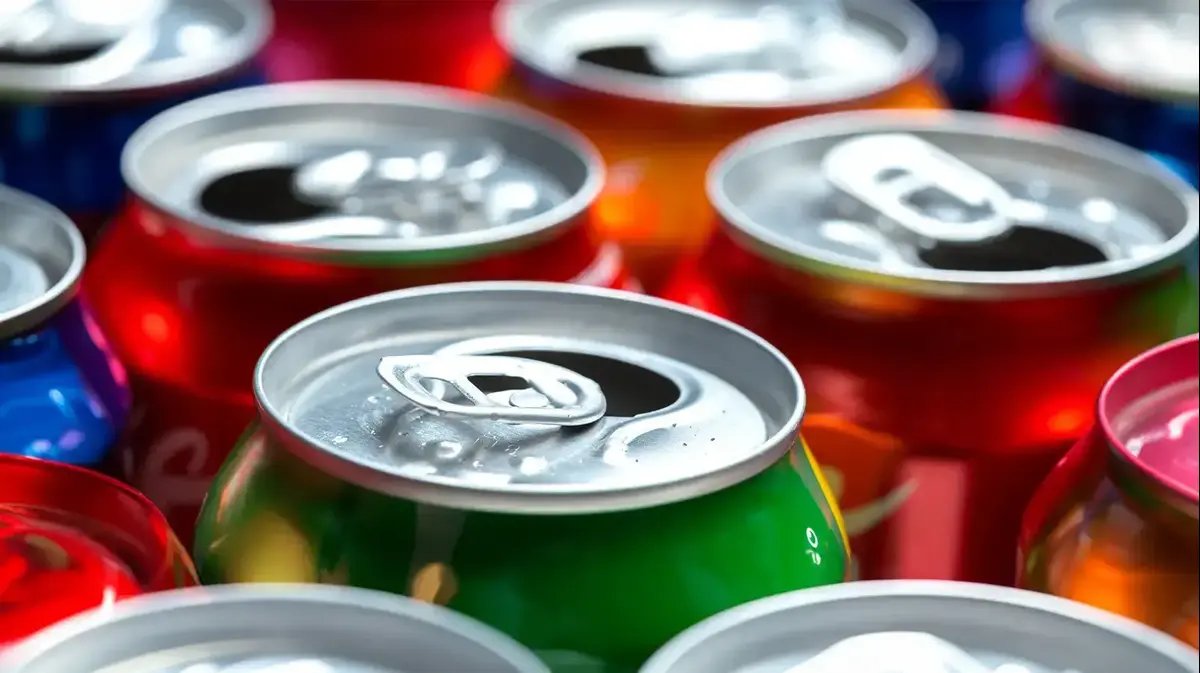Drink cans / Image processing, Shutterstock
Drinking seven or more cans of diet soda a week may increase the risk of long-term heart problems, according to a study published this week in the journal Circulation: Arrhythmia and Electrophysiology.
Researchers in China spent four years assessing 200,000 adults in the UK who had not previously been diagnosed with a heart condition, then followed them up 10 years later.
They found that those who drank more than two liters, about seven cans, of diet soda per week were 20% more likely to develop atrial fibrillation than those who did not.
About 90,000 Israelis suffer from atrial fibrillation, but 30,000 of them have no symptoms, which means that they walk around with a ticking time bomb in their body that is not felt and can cause a stroke without any early warning sign.
The condition, from which President Joe Biden suffers among others, kills tens of thousands of people a year around the world.
Diet is not (always) healthy
The findings come months after the World Health Organization determined that aspartame, the artificial sweetener in Diet Coke, is a possible carcinogen, meaning it can cause cancer.
However, independent experts raised reservations about the study, stating that the data is only short-term and observational, meaning the reason for the increase in heart problems is unclear.
Dr. Ningjian Wang, lead study author from Shanghai Jiao Tong University School of Medicine in Shanghai, China, said: "Our study findings cannot definitively conclude that one beverage poses a greater health risk than another due to the complexity of the diet Ours and because some people may drink more than one type of beverage."
"However, based on these findings, we recommend that people reduce or even avoid sugary and sugar-sweetened beverages whenever possible," he added: "Don't take it for granted that drinking low-sugar beverages And low-calorie, artificially sweetened is healthy, it may pose a potential health risk."
US President Joe Biden visits a border town in Texas, February 29, 2024/Reuters
The research team evaluated 201,856 adults in the UK Biobank database between 2006 and 2010.
The patients ranged in age from 37 to 73, and 45 percent of them were men.
The researchers followed the participants for an average of 10 years and collected blood samples to measure their genetic risk for atrial fibrillation.
Participants were also asked to answer one 24-hour questionnaire about their diet on five separate occasions between April 2009 and April 2012.
Those who drank more than two liters per week of beverages sweetened with artificial sweeteners, about seven cans, had a 20% higher risk of developing atrial fibrillation compared to those who did not. Don't drink these drinks.
In addition, those who drank at least two liters of sugary drinks had a 10% higher risk of being diagnosed with heart disease.
"Participants who consumed more sugary drinks were more likely to be male, younger, have a higher body mass index (BMI), a higher incidence of heart disease, and lower socioeconomic status."
The team also noted that those who drank sweetened beverages and pure fruit juice were more likely to have a higher total daily sugar intake than those who drank artificially sweetened beverages.
"Although the mechanisms linking sugary drinks and the risk of atrial fibrillation are still unclear, there are several possible explanations, including insulin resistance and the body's response to various sweeteners."
Still, there are some major limitations to the study: "The limitations of this study include that the findings were observational and cannot prove a causal relationship between the consumption of certain types of beverages and the risk of atrial fibrillation," the researchers wrote.
"In addition, the findings relied on the participants recalling their diet, so there may have been memory errors or bias. It is also unknown whether the sugar-sweetened and artificially sweetened beverages contained caffeine."
More on the same topic:
sugary drinks
heart diseases

